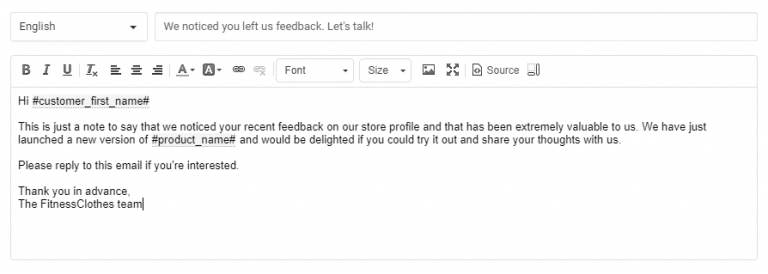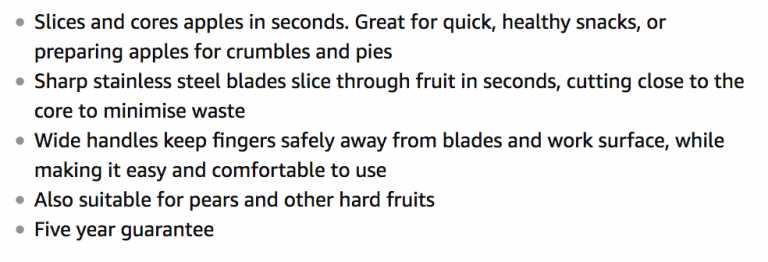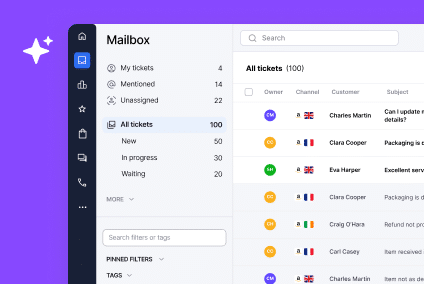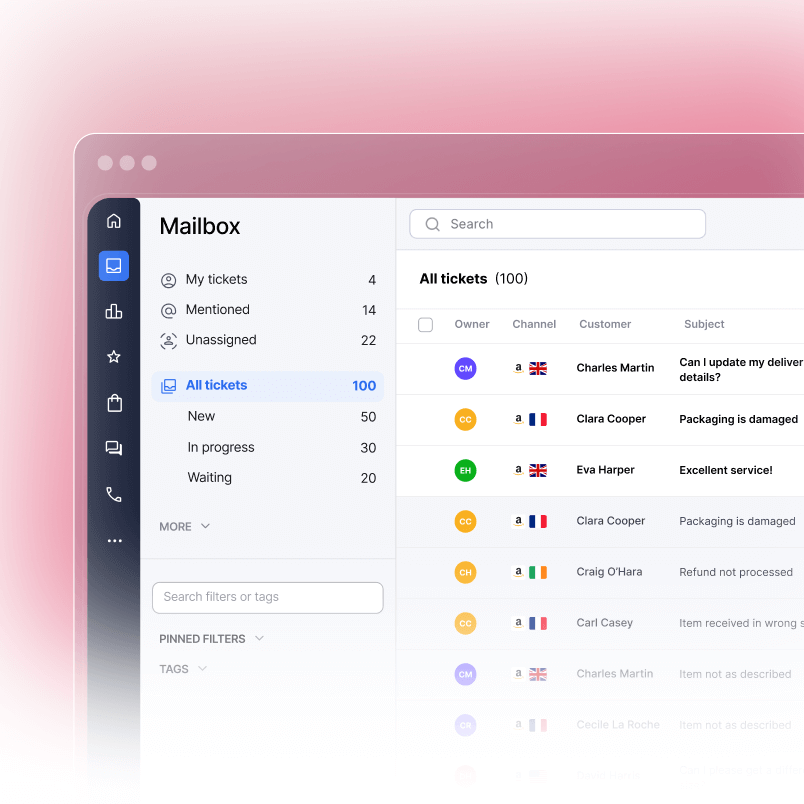When you first start selling online, receiving negative customer feedback can feel like a real kick in the teeth. You’ve put in all the hard work to get the order out but have fallen short of your customer’s expectations and are now worried about your reputation, not to mention how it might affect your metrics.
With experience though, you start to realize that negative customer feedback is just part of selling online and shouldn’t be taken to heart. In fact, if you use it creatively, it can even present you with an opportunity to shine.
#1. Ask your staff for suggestions
When you receive negative customer feedback, your goal should always be to make improvements so that you avoid receiving the same criticism again in the future. Sometimes though, it can be difficult to come up with a solution and you may need to think outside of the box.
Some companies have come up with more creative ideas for asking their staff for suggestions. For example, Amazon has a virtual suggestion box where its staff can submit ideas, while the Department for Work and Pensions in the UK created a gamified app called Idea Street where its staff could leave their suggestions.
However, it can be even easier than that. One idea could be as simple as taking a screenshot of the negative feedback and attaching it to an email asking your staff for their suggestions. Take this feedback for example:

Specifically, with this example, you can discuss with your employees what has been happening in the process to make this customer unhappy again. By doing this, you can choose from a diverse range of ideas, some of which you may never have thought of.
The best thing about this solution is that it applies to all marketplaces. So, whether you sell on Amazon, eBay or another channel, you can put this method into action.
#2. Create a focus group
When private labelers create a new product, they tend to develop it in phases. They release the first product, gauge the reception and then make changes accordingly.
One creative way to make sure that your second version really is an improvement is to ask the customers that previously left negative feedback to test out the latest iteration. This way, you can be sure that their criticisms have been addressed. For example, you could target an email to the chosen list of customers like this:

To build your focus group of suitable customers, you need to look at any negative product reviews you received and also check your seller feedback, as product-related comments can often be left there. You’re ideally looking for customers that have left constructive reviews that suggest a way to improve your product. These are some good examples from Amazon and eBay.

Once you’ve found the negative comments and identified who left them, you can then use buyer-seller messaging to ask if they’d be interested in trying your improved product.
As a general best practice, you should make sure to respond to all reviews negative and positive prior to asking for a favor. In particular for negative reviews, write the message from an after-care perspective, apologizing again for their bad experience and explaining that you’ve taken their feedback so seriously that you’ve altered your product. It’s a great way to get them onboard!
#3. Reply to negative customer feedback using videos
When you receive negative customer feedback on Amazon and eBay one of the options you have is to respond to it. Traditionally, this is done with a short, apologetic paragraph that addresses the customer’s complaints and details how they plan to improve.
But, as almost every merchant on Amazon and eBay does this, it can start to sound predictable. Your customers may even become less receptive to it, especially if you’ve made similar replies to negative feedback in the past.
So, how can you make your customer service stand out from the crowd? One option is to respond to negative customer feedback using a short video. In the same way that people say “a picture paints a thousand words” you can imagine that a video goes further beyond this. It allows the customer to see the face behind the business, which can often be hidden in the world of e-commerce.
A study carried out by HubSpot discovered that 72 percent of consumers prefer videos to text marketing. If this is how consumers engage before purchasing, this is definitely the approach to take throughout the support process.
Bear in mind that the video doesn’t have to be too fancy or rehearsed. Just grab your phone, find a suitable place to film it and say all the things that you would have included in a written reply. The only difference is that you’re talking to your customer instead.
When your video is done, upload it to YouTube and then send the link to the customer in question. This may need to be done through buyer-seller messaging on Amazon, as you can only include URLs or links to other products sold on Amazon. If you need inspiration, then check out this chef who used YouTube videos to respond to bad reviews that his restaurant received on Yelp.
#4. Look at your competitors’ negative feedback and reviews!
If you’re an eBay or Amazon seller that owns their listing, then your competitors’ negative reviews could be a potential gold mine. Why? Because you can take advantage of their weaknesses and potentially steal their customers.
So, for example, if we look at apple slicers, one product received this negative review:

You could then react by adding bullet points to your product description that address your competitor’s flaws. For example, another apple slicer’s product description reads:

By doing this, you’re going to attract all the customers that left the first listing and are now hunting for a good quality slicer that’s easy to use. You could well get more sales without making radical changes. Just remember, it’s distasteful to completely disregard your competitors, so just use it as a way to boost your own marketplace profile as opposed to publicly shaming them.
Bottom line
The important thing to remember about negative customer feedback is that it is not always a reflection of you as a seller.
The customer could have simply had a bad day, or that the delivery man was rude, and the customer has taken it out on you. In these cases, very little can be done to prevent similar feedback being left in the future. But your job is to perfect the touchpoints of the journey that are within your control.
It is also important that you generate as many positive reviews as you can because these will lessen the impact of any negative ones.
eDesk is the leading helpdesk for online sellers, purpose-built to address the precise demands of e-commerce. Sign up for a no-hassle, 14-day free trial right now.






